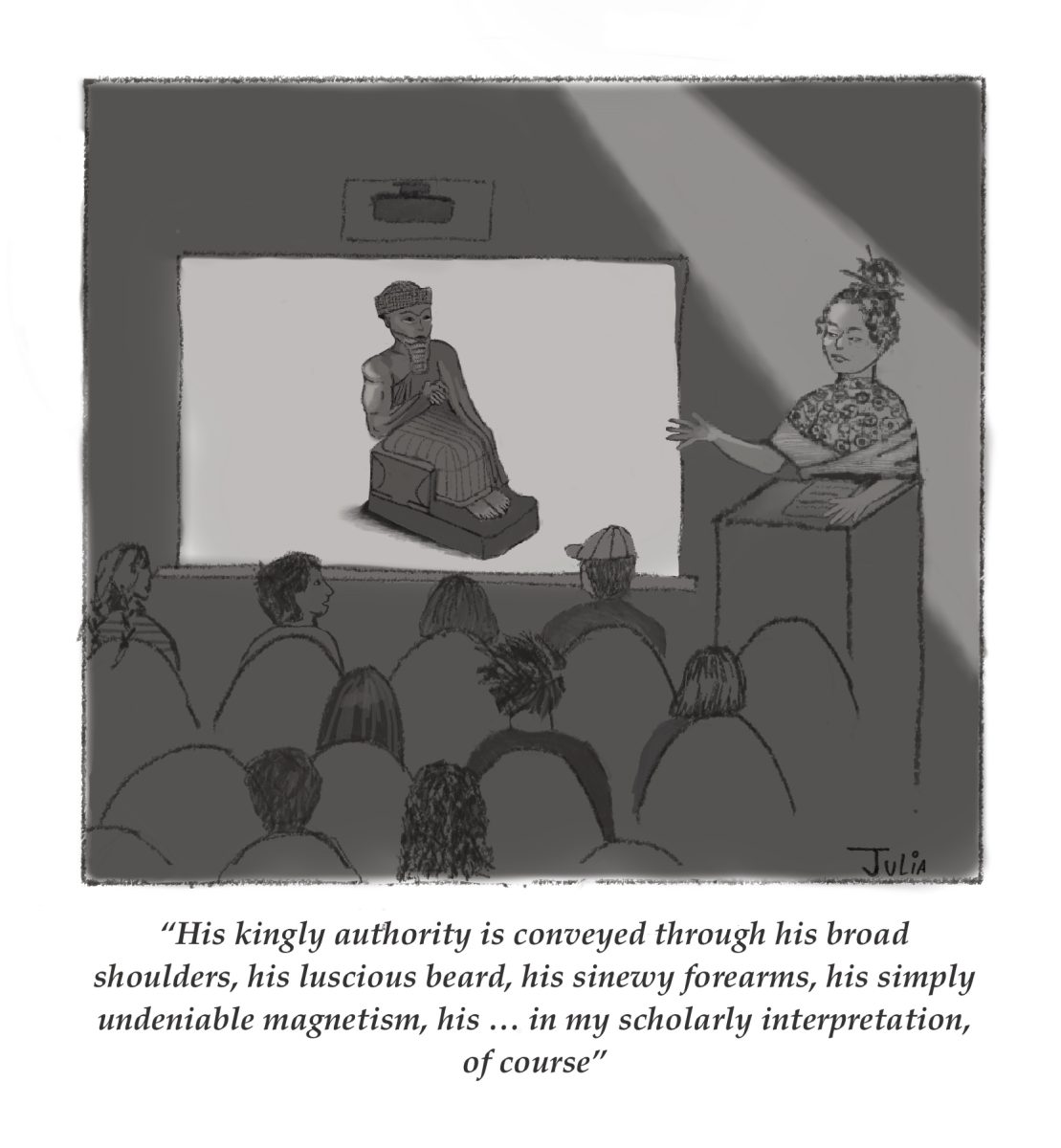Today, you may see people across campus with ashes on their foreheads. Receiving ashes marks the beginning of the penitential season of Lent for many Christians, as we remind ourselves that we are dust, and into dust we shall return. While this might seem a tad morbid, I find this reminder liberating. Through it, I recall my finitude and consequently my dependency on God.
We live in a death-denying culture that celebrates the young, the beautiful, and the strong. I’m aging, no matter what type of skincare regime I adopt or supplements I ingest (AG1 anyone?). I cannot escape my mortality.
On Ash Wednesday, I am reminded that I am not in control (granted, I do have free will). My time here on Earth is brief, and so I put my trust in God. I experience real freedom in accepting and remembering this. I need this reminder every year.
In his Lenten address last week, Pope Francis highlighted the Exodus story as a way of explaining that there are “moments when we feel hopeless, wandering through life like a desert and lacking a promised land as our destination.” To move towards freedom, Pope Francis says, we first have “to desire to open our eyes to reality.” He invites us to be part of the movement of “countering the globalization of indifference,” asking us to consider two questions: “Where are you?” and “Where is your brother?”
We live in a world where so many people are captive. I think of those in Gaza who are trapped at the Rafah border crossing and those who remain held hostage by Hamas. In our own country, undocumented teenagers are forced to work on dangerous construction sites and are trafficked for their bodies. All of these situations are dire but can feel far away from our bucolic campus. What can you do right here in Williamstown to move towards freedom this Lent? Perhaps you feel inspired to invite a classmate who seems lonely to have dinner; volunteer at the Williamstown Food Pantry; or call a sibling, parent, or grandparent who you haven’t talked to in a while.
Almost two weeks ago, I participated in a retreat with about a dozen Williams students facilitated by Fr. Kevin O’Brien, S.J. on the Ignatian understanding of spiritual freedom. This concept encourages us to let go of attachments that disrupt our relationships with others and with God. Perhaps you are attached to perfectionism, individualism, or materialism. Perhaps you worry about fitting in socially on campus to the extent that you have lost sight of your own values and desires. Fr. O’Brien stressed the importance of naming our unfreedoms so that we can be less blind to them. This Lent, I want to let go of my attachments to my beliefs that leave me feeling bitter, jealous, and insecure, that prevent me from being loving, and that hurt others and myself. As Pope Francis says, these attachments “imprison us.”
So when you see someone with ashes on their forehead today, I hope you’ll consider the ways in which you might attempt to move towards freedom, too. “The more we practice freedom in small ways, the freer we become,” Fr. O’Brien says. Where are you? Where is your brother?
Bridget Power is the College’s Catholic Chaplain.




